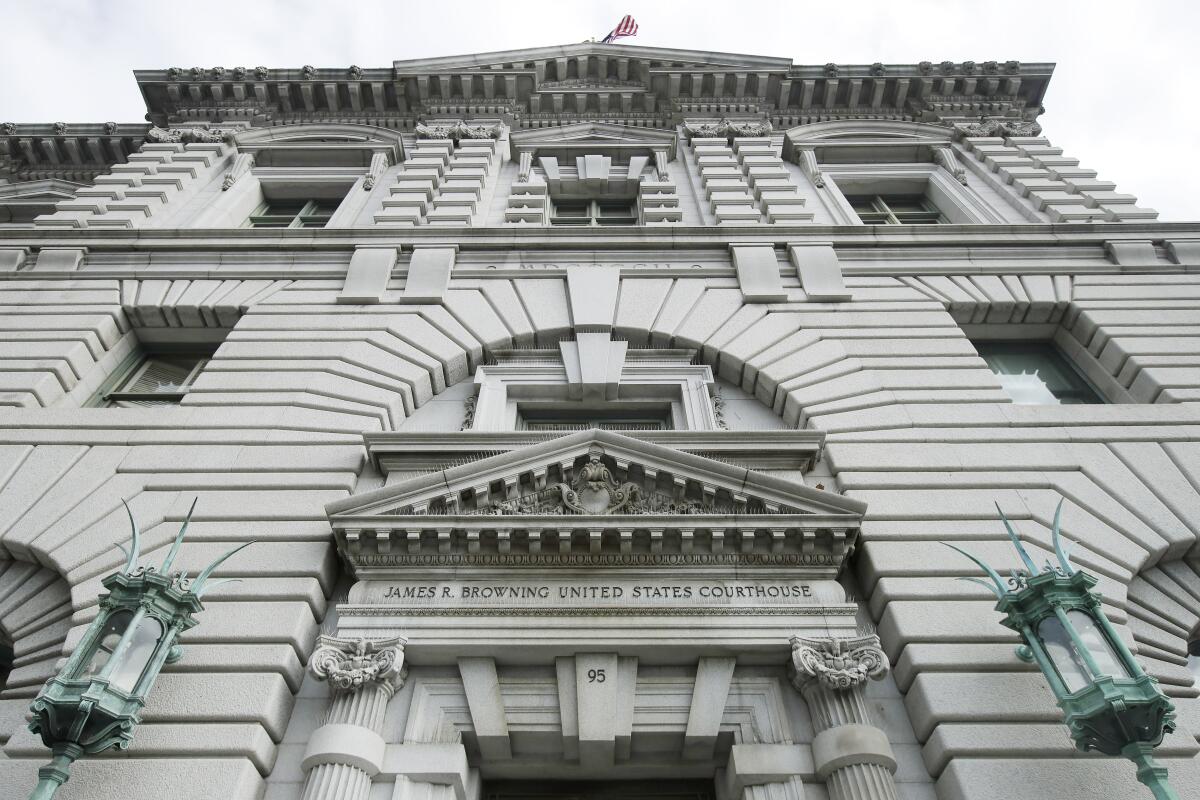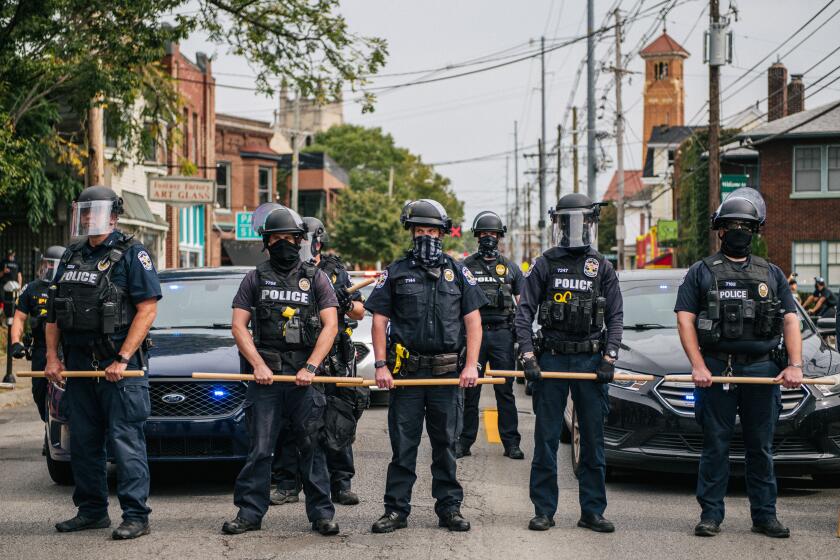Sergeant can’t use qualified immunity to stop lawsuit in Riverside fatal police shooting, court rules

- Share via
A California judge on Thursday denied an appeal for qualified immunity from a Riverside County Sheriff’s Department sergeant who is accused of shooting and killing a man with excessive force.
Nearly every key detail of the years-long case against the sergeant and the county is disputed, including whether the man was retreating from the property at the time of the shooting; whether he was holding a baseball bat in an upright position or with its tip pointed down; and whether he posed a threat to bystanders.
Sgt. Dan Ponder contends that the man, Clemente Najera-Aguirre, stood facing him as he fired the six shots that ultimately led to his death. A coroner concluded that Najera died from two shots in his back.
Those discrepancies create factual disputes for a jury to resolve, the U.S. 9th Circuit Court of Appeals in San Francisco said. But the court also precluded Ponder’s request to have the case dismissed on the grounds of qualified immunity, a legal shield that protects officers from civil liability if they violate a person’s civil rights.
“Nothing in the record suggested that Najera was threatening bystanders or advancing toward them when he was killed,” Judge M. Margaret McKeown wrote in her 3-0 ruling, which upholds the district court’s earlier denial of qualified immunity and enables Najera’s family to proceed with their suit against the officer.
Based on the facts alleged in the suit, Najera “presented no threat at all to the officer — or anyone else — in that moment,” McKeown said.
Debate over qualified immunity could keep Congress from passing policing reform. Do you actually know what it is?
The shooting happened in April 2016 after Ponder responded to radio reports that a man, later identified as Najera, was destroying property in Lake Elsinore with what appeared to be a baseball bat.
According to court documents, and as reported by the San Francisco Chronicle, Ponder confronted Najera with his gun drawn at the scene. He demanded that Najera drop a stick in his hand, which he did not do. Ponder next tried to pepper-spray Najera, but the spray blew back in his face and Najera was largely unaffected.
Ponder again pointed his gun at Najera and ordered him to drop the stick, but Najera did not comply.
By some witness accounts, Najera then retrieved a baseball bat from nearby bushes and “advanced quickly toward Ponder with at least one weapon raised,” court documents say. Yet other witnesses say that “Najera stood still, holding a single stick pointed down.”
“Whichever the case, Ponder, without issuing a warning, shot Najera six times from no more than 15 feet away,” McKeown wrote, adding that though Ponder claims Najera faced him during the shooting, the bullet paths suggest he “turned away from the officer and was falling to the ground when the bullets struck.”
“Ponder can neither rewrite the facts to his own liking nor ignore the disputed evidence,” the judge said. Ponder maintains that Najera posed a threat to the officer and to bystanders.
Attorneys for Ponder argued that he was eligible for qualified immunity, but the judge cited precedent cases supporting the family’s claims that his conduct was unlawful and a violation of Najera’s constitutional rights.
Riverside County Sheriff’s Department spokeswoman Sgt. Brandi Swan said Friday the department “respectfully disagrees with the 9th Circuit Court’s ruling.”
“We will assess our options in the coming weeks to determine our approach and response to this ruling,” she said. “Any further comment regarding Sgt. Ponder will not be released at this time pending litigation.”
An attorney for Ponder and the county similarly said Friday he was not authorized to comment on the ongoing litigation.
Dale Galipo, an attorney for Najera’s three children, said Friday the family was happy with the latest development.
“We are pleased with the court’s decision and believe it was the correct decision based on the law and the evidence,” he said.
More to Read
Sign up for Essential California
The most important California stories and recommendations in your inbox every morning.
You may occasionally receive promotional content from the Los Angeles Times.











